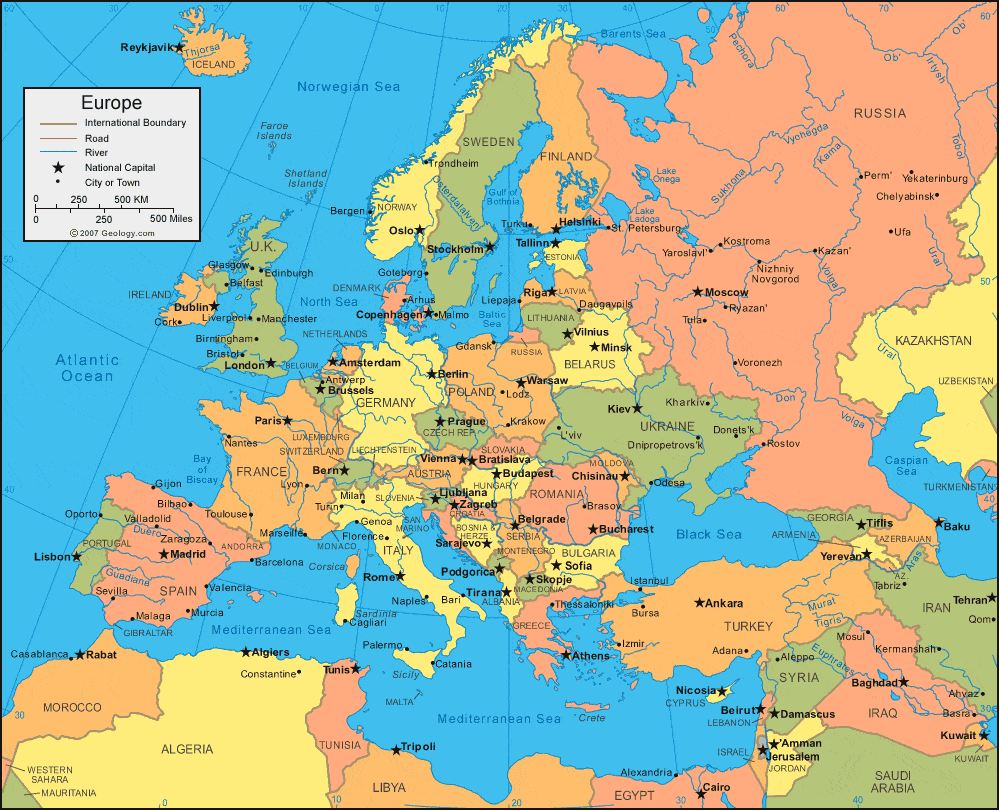
Azerbaijan is the country for this week.
The capital of Azerbaijan is Baku.
Azerbaijan is a secular and unitary republic.
93%-96% of the population is Muslim, 85% of these Shia, 15% Sunni.
After the Russian Empire collapsed in World War 1, Armenia, Georgia, and Azerbaijan joined together to become the Transcaucasian Democratic Federative Republic. It was short-lived however, and dissolved in 1918.
Azerbaijan declared independence as the
Azerbaijan Democratic Republic (ADR), but it only lasted 23 months because of the Bolshevic XIth Red Army invasion in April 1920. The ADR was overthrown and the Bolshevics established the
Azerbaijan SSR. Another union with Armenia and Georgia was formed, making up the Transcaucasian Soviet Federative Socialist Republic (TSFSR).
In 1936 the TSFSR was dissolved and Azerbaijan SSR became one of the 12 constituent member states of the Soviet Union.
During the 1940's, Azerbaijan played an important part in supplying much of the Soviet Union's oil on the
Eastern Front of World War II, and close to 600,000 Azerbaijanis fought on this front against Nazi Germany. Adolf Hitler launched Operation Edelweiss with the intent of capturing the Caucasian oil fields and Baku, but all the offenses were pushed back and the efforts made by the Germans were fruitless.
Civil unrest grew in parts of the Soviet Union including Nagorno-Karabakh, a region of the Azerbaijan SSR. These disturbances resulted in calls for independence and secession from the USSR.
In 1990, the Supreme Council of the Azerbaijan SSR dropped the words "Soviet Socialist" from the title, adopted the Declaration of Sovereignty of the Azerbaijan Republic, and restored the modified flag of the ADR.
In 1991, the Supreme Council of Azerbaijan established the office of the presidency, and Ayaz Mutallibov was elected as president (he was the only candidate).
On October 18, 1991, the Supreme Council of Azerbaijan adopted a Declaration of Independence which was affirmed nationwide in December when the Soviet Union was officially dissolved.
The early years of independence, however, were overshadowed by the
Nagoro-Karabakh War with neighboring Armenia.
By the end of hostilities in 1994, Azerbaijan lost control of up to 16% of its internationally recognized territory, including Nagoro-Karabakh itself.
The territorial ownership of Nagorno-Karabakh today is still a heavily disputed issue between Armenia and Azerbaijan.
http://en.wikipedia.org/wiki/Azerbaijanhttp://news.bbc.co.uk/2/hi/europe/country_profiles/1235976.stmhttps://www.cia.gov/library/publications/the-world-factbook/geos/aj.htmlI also found this cool new site:
http://www.world-flags.info/Europe/europe.htmlPictures of Azerbaijan:






